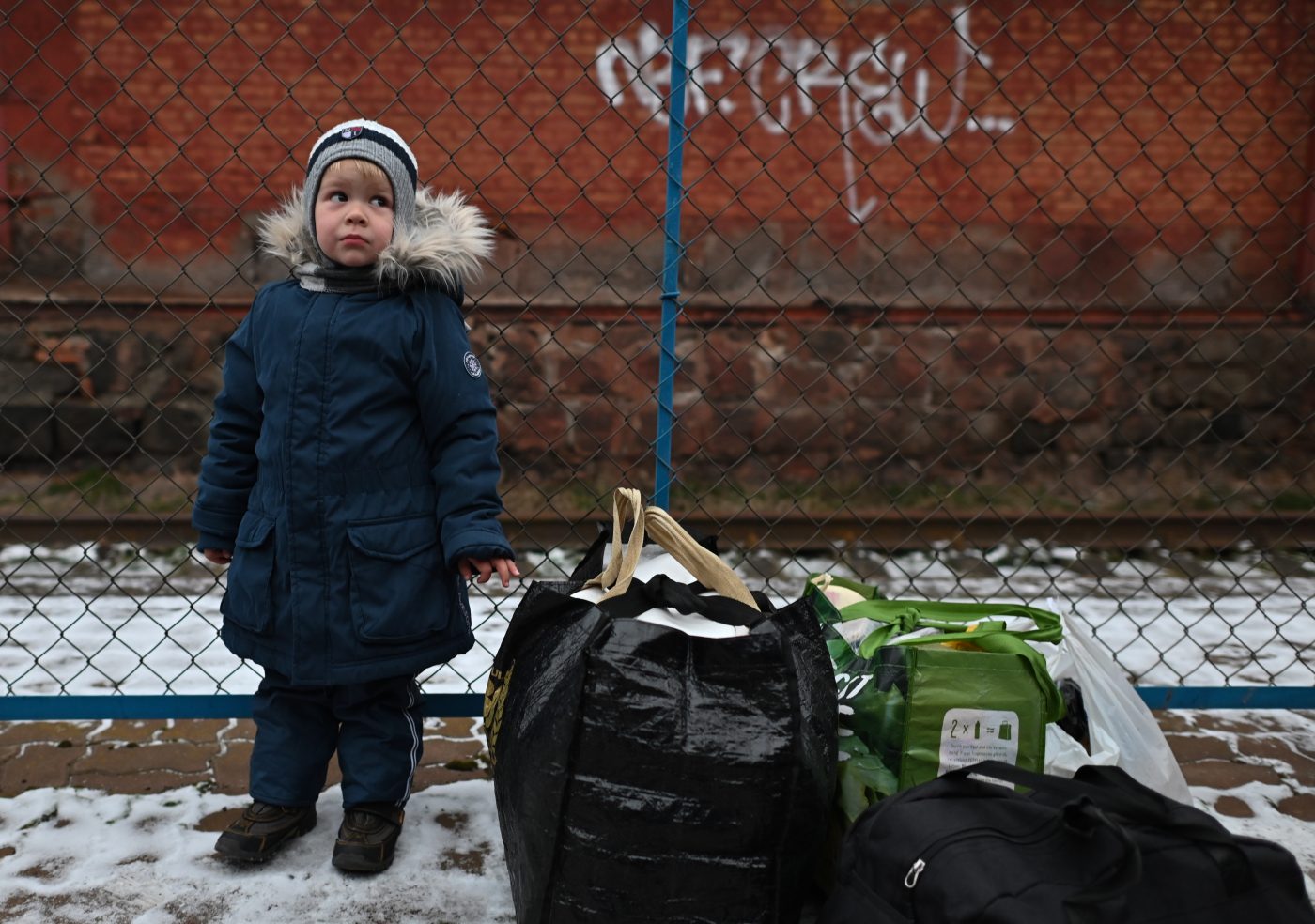Russian soldiers attacked Ukrainian forces on the Avdiivka, Bakhmut, Lyman, and Zaporizhzhia fronts. On the Kupiansk, Novopavlivka, and Kherson fronts, they remained on the defensive.
The invaders continued illegal mobilization in the occupied territories, and hospitals were ordered to put care for Russian soldiers ahead of local residents. Due to significant losses, occupation forces in Kherson Oblast have also converted kindergartens into medical facilities. In Mariupol, there is a shortage of medical specialists, while in the occupied areas of Zaporizhzhia Oblast and Crimea, local hospitals are being taken over by the military using Russian doctors.
Russia continued to widen the net to conscript people into its war with Ukraine. In Crimea, the occupying forces announced the enlistment of mercenaries for the newly created private military companies Shchit and Rusich. In Sevastopol, IT specialists, financial workers, and other specialists who were previously exempted from conscription started to receive call-up papers.
Occupation forces further limited the rights and freedoms of people in occupied areas in Luhansk and Zaporizhzhia oblasts. They blocked the cities of Rubizhne, Lysychansk, and Sievierodonetsk in the Luhansk Oblast, making it impossible to enter or leave them. In Melitopol, Zaporizhzhia Oblast, residents will need special passes to cross checkpoints after March 1. The passes will only be available in return for handing over personal data.
Increasing numbers of people are being deported from the occupied areas of Zaporizhzhia and Kherson oblasts. The strategy of the occupying forces is to intensify military activity, so all social institutions stop working and then announce an “evacuation.” Since the beginning of Moscow’s large-scale invasion, the Russian military has deported more than 2 million Ukrainians from occupied territories, forcing them to adopt Russian citizenship. People are taken to Krasnodar and Stavropol oblasts of the Russian Federation.
Crimea
Russia is stepping up its mobilization in Crimea. IT experts, financial workers, and other specialists who were exempted from conscription have started to receive call-up notes in Sevastopol, according to the General Staff of the Armed Forces of Ukraine. At the same time, the occupying authorities of Crimea are trying to convince the peninsula’s population that there is no covert mobilization and that these allegations are “fake.”
The general staff also reported Russia had announced the recruitment of mercenaries in Crimea for two newly created private military companies, Shchit (Shield) and Rusich (the word for a person from the medieval state of Kyivan Rus). “Ex-servicemen and other employees of the security forces are invited to join, with priority given to officers. Potential candidates are promised a higher salary and told they will not be involved in hostilities in the territory of Ukraine,” the general staff said.
Russian occupying forces are moving convicts from prisons, as well as those under investigation in pretrial detention centers, from Crimea to Russia, according to the Crimean Wind Telegram Channel.
Active propaganda and militarization in educational institutions are also continuing on the peninsula. Crimean Wind published pictures of children in military uniforms at school #60 in Sevastopol. “Because of the director Lyudmila Viktorovna Radkovskaya, all adequate teachers left the school, and the educational institution itself turned into an incubator where zombie patriots are grown from children,” the Telegram Channel reported.
In Yalta, schools have appealed to parents for donations for wounded Russian soldiers, Crimean Wind wrote. New board games for adults, checkers and puzzles, new magazines, and newspapers with crossword puzzles are being collected for men who are in “rehabilitation.”
Russian forces are requisitioning more hospital beds on the peninsula to cope with losses on the Zaporizhzhia front. Due to a shortage of beds, the occupiers have turned ordinary hospitals into military hospitals. “At the same time, Russian doctors were brought to the hospital because they do not trust the local ones,” the National Resistance Center reported.
Occupying authorities are also expanding cemeteries for Russian soldiers in Crimea. A fence has been erected along the roadside at Crocodile Mountain, a landmark close to the village of Krasnyi Mak (Büyük Qaralez), in the south-west of the peninsula, according to the Association of Reintegration of Crimea.
“It is obvious that the occupiers are actually trying to ‘solve the problem’ of mass burials of Crimeans and Sevastopol citizens killed as part of the aggressor's army, for which there are no longer enough ‘ordinary’ cemeteries,” the association wrote in a post on Facebook.
Donetsk Oblast
Fighting continued for Soledar, despite the Russian ministry of defense announcing the capture of the city. The invaders had already stamped and begun distributing medals to their soldiers “For the capture of Soledar,” though battles were still ongoing.
Russian forces tried to break through the defense line near Bakhmut, but Ukrainian soldiers repelled the attack. On January 23, the State Border Guard Service of Ukraine reported it had captured a Russian position near Bakhmut, and the invaders retreated under heavy fire.
The Territorial Defense Forces battalion continued securing positions around Bakhmut. “Georgian,” a businessman who joined the battalion when the full-scale invasion began, told Ukrainska Pravda that if there was parity of equipment and artillery, Ukraine would have won the war long ago. “The only thing that slows us down is that they have twenty times more weapons than we do. But Ukrainian soldiers are very brave,” he said. Mobilized men in outdated Soviet peacoats had repeatedly tried to attack their positions, the middle-aged soldier told the newspaper. “And Wagner mercenaries were behind them in full gear: with body kits, cameras, and precision sights. We repel them, and they are driven forward, and driven, and driven. Russia really treats its servicemen like meat,” he said.

The battles continue in Avdiivka too. Vitalii Barabash, head of the Adviivka City Military Administration, said in an exclusive comment to CEPA that there are between 12 and 40 attacks on Avdiivka every day, and 150-300 attacks on positions around the city. There are airstrikes almost every day, sometimes more than one, he said.
“Currently, about 2,500 citizens live in the city, and there has been no water for more than a year. Even before the full-scale invasion, the Donetsk water filtration station was cut off, and we were unable to repair it,” Barabash said. “There has been no electricity for 10 months, and no gas supply since May 2022. Humanitarian aid (food, hygiene kits) is in sufficient quantity. Medicines are also available. The logistics are complicated, the road to the city is almost constantly under fire.”
Russian forces continue to increase their military activity in occupied Mariupol. More than 10 trucks with Russian military personnel arrived in the city on January 16 alone. Petro Andriushchenko, an adviser to the Mayor of Mariupol, wrote on Telegram that the occupiers had begun to recruit additional cooks and service staff for “boarding houses,” which he said was a euphemism for barracks. Russian soldiers try to move their military equipment in the evening, during curfew, so residents don’t record it.
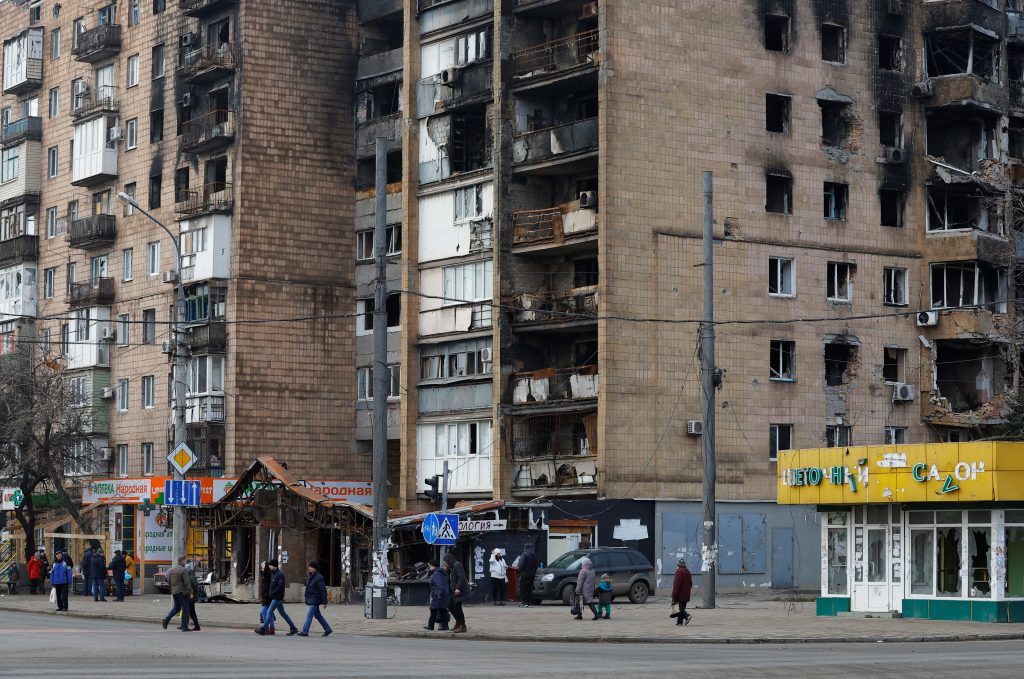
The occupying authorities are also continuing to demolish ruined buildings in Mariupol.
“Dismantling our buildings, the Russians are setting up real concrete mass graves,” the Mariupol city council said on Telegram. “After all, some of them still contain the bodies of Mariupol residents killed during the blockade. It’s a cynical attempt to hide their crimes.” According to Ukrainian authorities, Russian forces plan to demolish around 1,000 buildings, and residents will have to find their own alternative accommodation.
There is a shortage of medical specialists in Mariupol. In a video published by the city council, hospital workers said they are not officially registered as employees, and the occupiers only pay them the minimum wage. “I am not paid either for years of service or for a higher category. [They pay] the minimum because we are, in fact, not registered [as employees],” one of the doctors said.
Russia has set up a department of the Federal Security Service (FSB) of the Russian Federation in Donetsk Oblast. Major General Oleg Bolomozhnov was appointed as its head, the Ostrov information agency wrote. Bolomozhnov began his service in the KGB of the USSR, then served in the FSB of the Russian Federation and headed its department in Saratov Oblast.
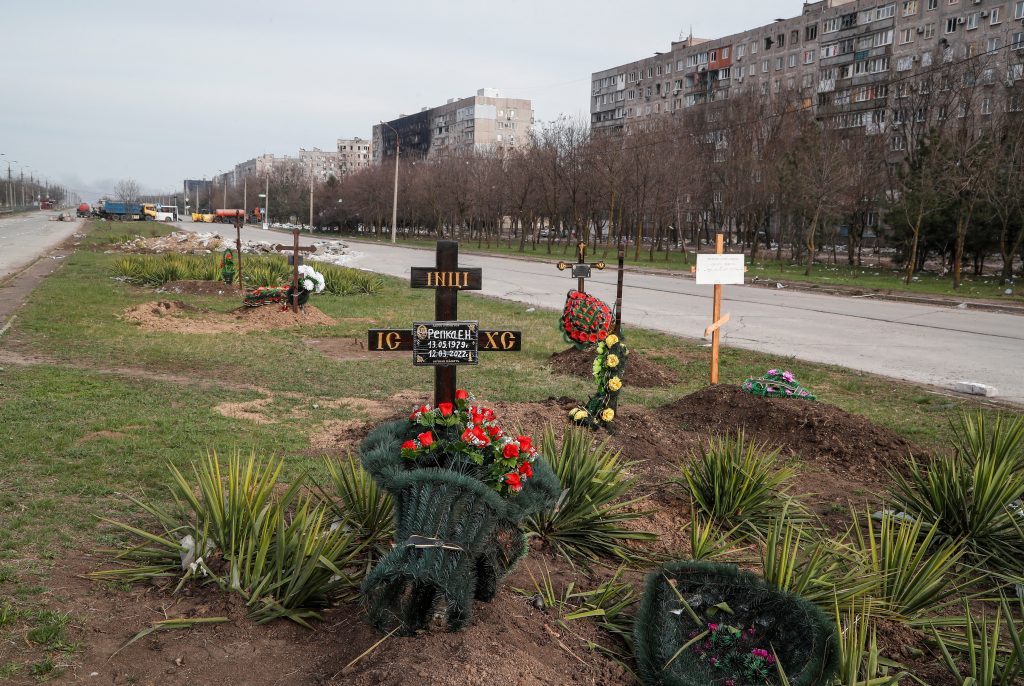
Kharkiv Oblast
Russian soldiers continue attacking settlements in Kharkiv Oblast, damaging critical infrastructure and causing casualties and fatalities.
In one week, Russian soldiers hit Kupiansk Motor Transport Vocational College and Kupiansk boarding school with S-300 missiles. According to preliminary information from Oleh Syniehubov, head of Kharkiv Oblast Military Administration, there were no casualties but the premises of the college were almost completely destroyed.
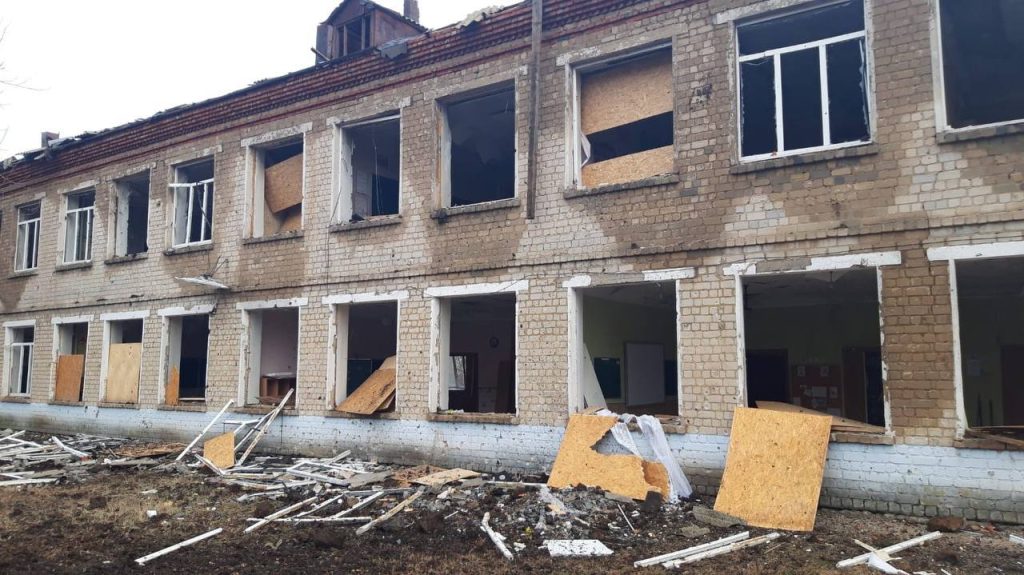
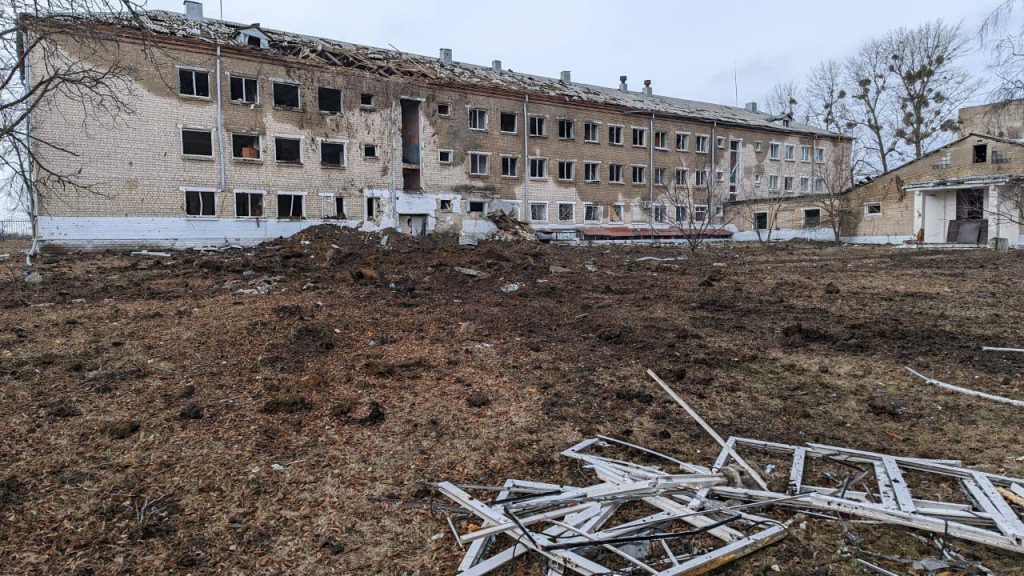
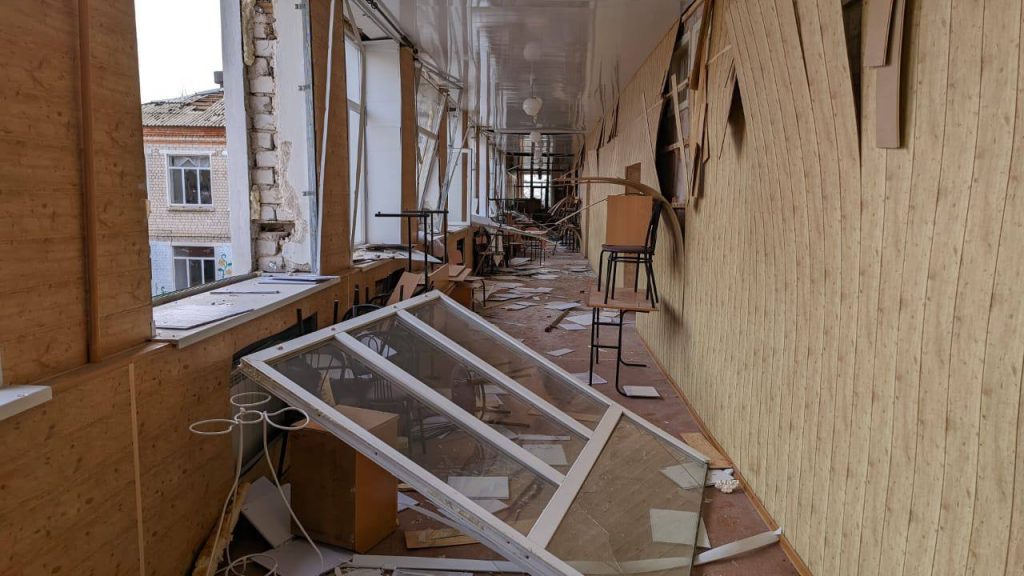
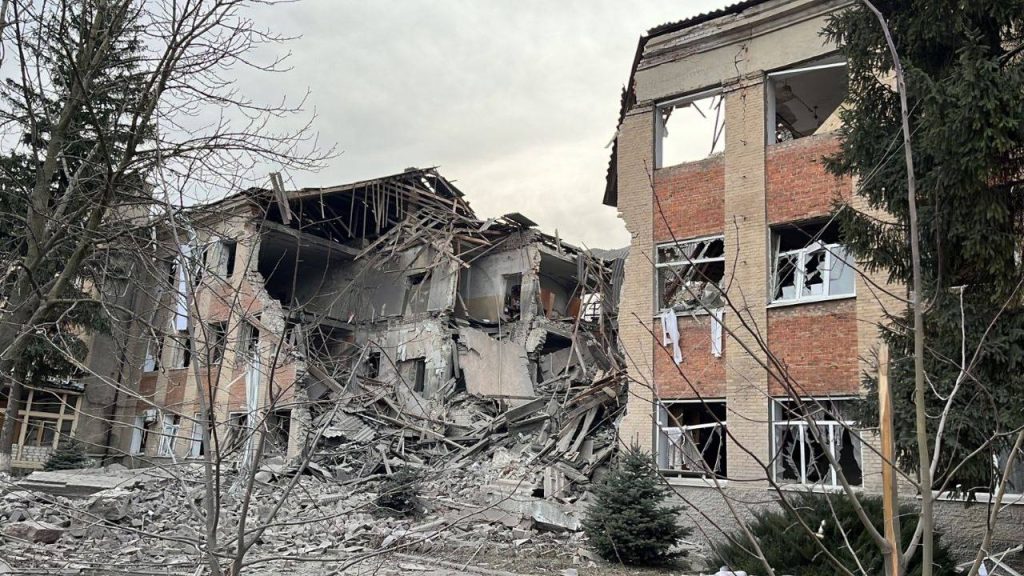
Almost 40% of residential buildings in Kharkiv Oblast have been damaged as a result of Russian shelling, Suspilne wrote, citing Serhii Mahdysiuk, head of the regional department of housing and utilities. The worst situation for heat supply is in the Kupiansk district, and in hromadas (municipalities) that are constantly shelled by the Russian Federation.
Ukrainian authorities are continuing work to repair necessary services in liberated territories. Power supply specialists have completely restored the electricity supply in Izium, which was liberated from the Russian army in September.
Kherson Oblast
Kherson and many other settlements on the west bank of the Dnipro River remain under attack by the Russian army.
The occupying forces are also strengthening their control of the civilian population in the occupied territories of Kherson Oblast.
“In particular, they are trying to create a database of civilian residences, and threatening to cut off electricity,” the General Staff of the Armed Forces of Ukraine reported. The so-called authorities want locals to sign residency permits “under the guise of implementing an electricity-saving program.”
Russian troops are still looting in the occupied territories. In the settlements of Hornostaivka, Kairy, Bratoliubivka, and Nyzhni Sirohozy, the occupiers, moving in groups of 10-15, searched the empty homes of local residents and took away household appliances and furniture.
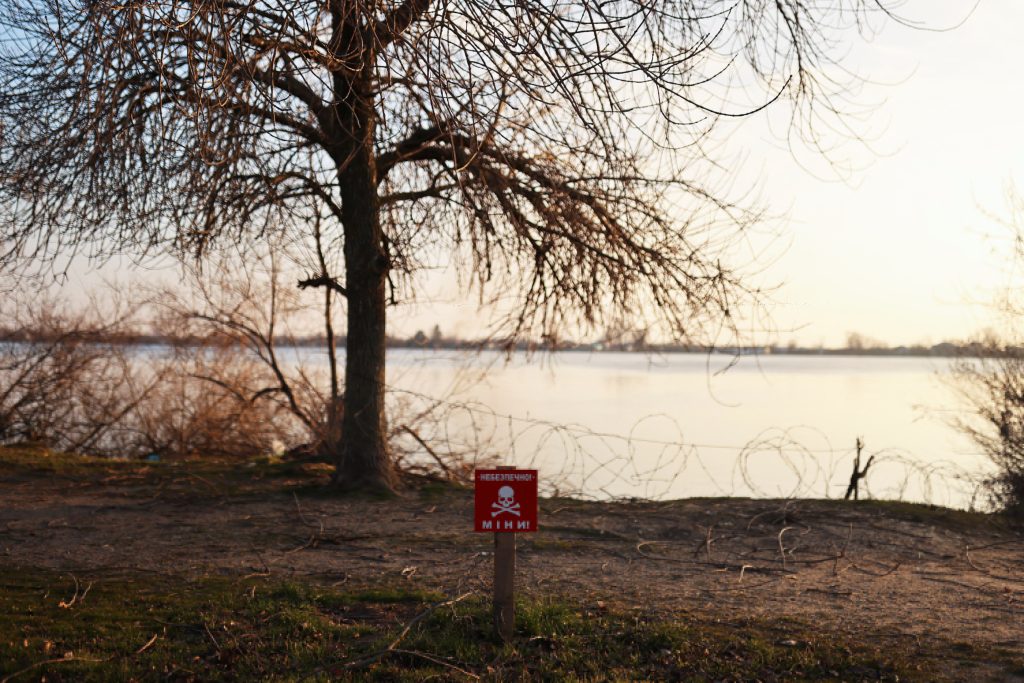
Russian occupation forces in Kherson Oblast are also converting kindergartens into military hospitals and prioritizing care for Russian military servicemen in existing facilities. The National Resistance Center reported that a TB hospital in Kakhovka, which was seized by the Russians, has stopped serving civilians. A new hospital is being set up to treat the Russian military.
Russian invaders have also increased the pace of deportations from the occupied areas of Kherson Oblast under the cover of ‘evacuation.’
“In order to create the so-called evacuation, the Russians stop the functioning of social institutions and intensify attacks to make the local citizens’ lives unbearable,” wrote the National Resistance Center. “After that, they announce an ‘evacuation,’ which is voluntary at first and becomes forced later.”
Since the beginning of Russia’s full-scale invasion of Ukraine, its troops have deported more than 2 million Ukrainians from the occupied territories, forcing them to adopt Russian citizenship. According to the National Resistance Center, Ukrainians are forcibly taken to Russia’s Krasnodar and Stavropol oblasts - regions that have been actively populated by ethnic groups from the Caucasus over recent decades. The Kremlin wants to balance the demographic situation in the region by mixing these ethnic groups from the Caucasus with Slavic people from Ukraine.
Luhansk Oblast
Battles in Luhansk Oblast continued during the week of January 16-23, and Russian occupying forces were still preventing all entry and exit in the cities of Rubizhne, Lysychansk, and Sievierodonetsk. “At the checkpoints, they require either registration documents (official proof of residence) or a certificate from the place of work,” according to the Luhansk Oblast Military Administration.
“The Russians are looking for their deserters,” Serhii Haidai, head of the military administration, wrote on Telegram.
Russian forces continue to suffer significant losses in manpower, the General Staff of the Armed Forces of Ukraine said on January 19. In Novosvitlivka alone, there are more than 200 wounded from the recently forced mobilization in the Luhansk region in the hospital, and more than 300 injured Russian occupiers are being treated in the surgical department of the Starobilsk city hospital.
Russian occupying forces want to impose administrative and territorial reform in the so-called LPR (self-proclaimed Luhansk People’s Republic). “Some city councils will be merged, staff will be reduced, and a number of services will be based exclusively in Luhansk,” wrote the Luhansk Oblast Military Administration.
In occupied Starobilsk and Novopskov, the internet has completely disappeared, and it is only possible to contact residents by phone.
Yulia, a native of Starobilsk who is in Germany but in contact with relatives at home, said in an interview with Suspilne that the occupying authorities in her district have started closing entire settlements for a number of days for “filtration.” “They listen to telephone conversations, inspect everyone's documents, and check on those who are considered ‘pro-Ukrainian,’” Yulia said. “In the last month, they say, 10 people were subjected to a polygraph in the regional center, and no one has returned yet. All 10 people were accused of ‘activities in the interests of the Armed Forces of Ukraine’ which, according to local ‘laws’ carries a penalty of up to 15 years of prison.”
Mykolaiv Oblast
Russian troops continue deploying weapons to the Kinburn Spit, the only area of Mykolaiv Oblast still occupied by the Russian army. They are using the peninsula, which juts into the Dnipro river’s access to the Black Sea, to prevent the oblast from joining the “grain corridor” and to harass the civilian population by shelling them, Vitalii Kim, head of Mykolaiv Oblast Military Administration, told 24 Channel.
Russian forces continue attacking Ochakiv hromada (municipality) from the spit. “There are certain military facilities in Ochakiv. The enemy sees this area as a threat,” said Major General Andrii Kovalchuk, Commander of the Pivden (South) Operational Command of the Land Forces. “They constantly keep us on our toes, and do not give us the opportunity to coordinate any units that could be used for a large-scale offensive in the area.”
Russian forces are also trying to prevent the reopening of Ukrainian ports in Kherson and Mykolaiv, he said. “The enemy is not interested in our people working and developing businesses. That is why they are ruining our infrastructure,” Kovalchuk said. “They completely excluded the possibility of navigation in the Mykolaiv region and Kherson region.”
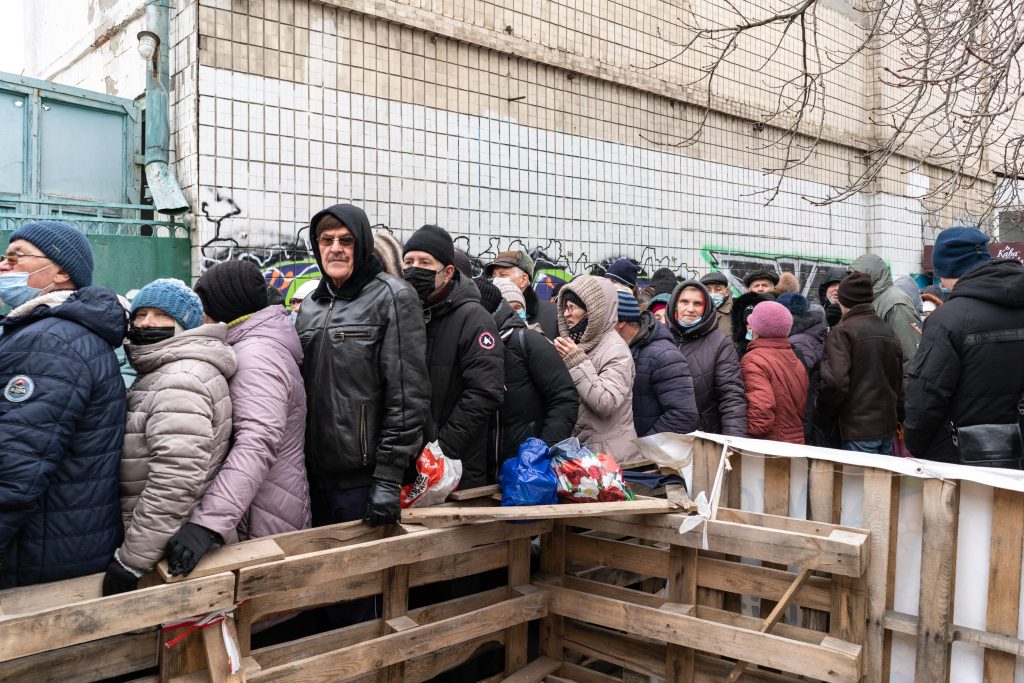
The Ukrainian authorities continue restoring damaged infrastructure. On January 17, a temporary bridge across the Inhulets River was opened in Snihurivka hromada. The previous crossing, which the locals called the Vasylivka Bridge, was destroyed by Russian troops when they were withdrawing from Snihurivka in November.
All businesses owned by Russian citizens in Mykolaiv Oblast have been taken over, Vitalii Kim said. “We seized all businesses, even agricultural ones... law enforcement agencies are working with them all.”
He also suggested the Mykolaiv alumina plant, currently owned by the Russian oligarch Oleg Deripaska, could produce raw materials for the production of aluminum in Europe after it is seized by the state.
Zaporizhzhia Oblast
Russian troops conducted a series of tactical offensives in small groups in the south of Ukraine, in particular, in Zaporizhzhia Oblast, but were repelled, Yevhen Yerin, head of the joint press center for Ukraine’s Defense Forces on the Tavriia front, told the national 24/7 newscast on January 21.
Zaporizhzhia hromadas are being attacked every day. “Another 172 attacks in just one day (during Ukraine's Unity Day holiday), 21 settlements were affected,” Oleksandr Starukh, head of Zaporizhzhia Oblast Military Administration, wrote alongside pictures of the damage on the regional authority’s website.
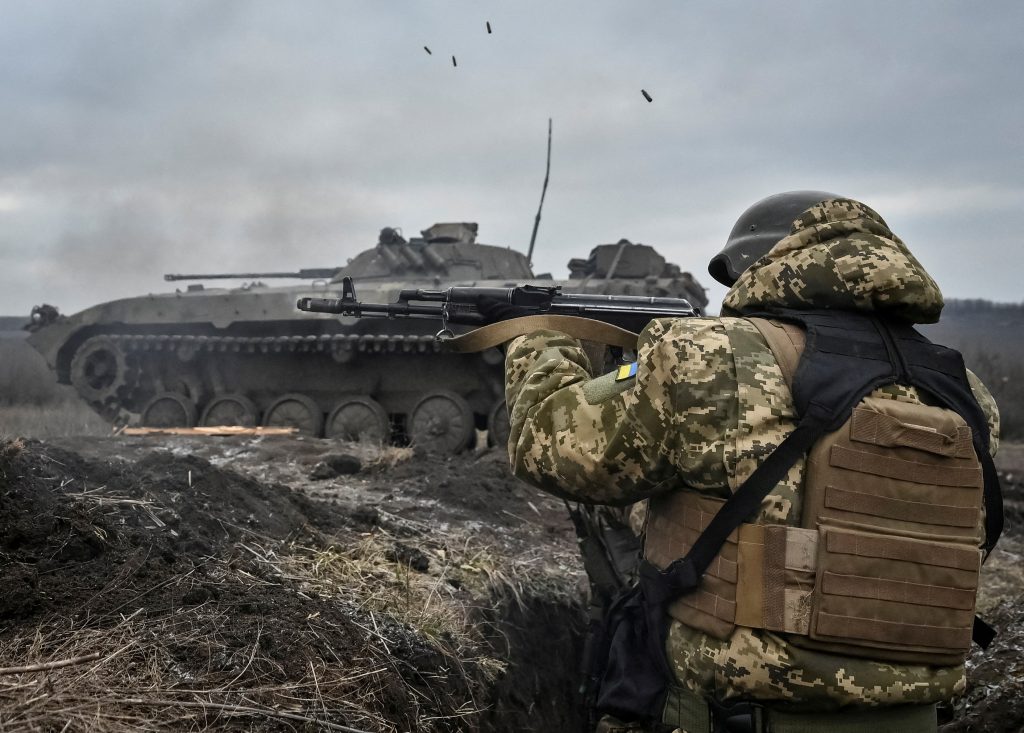
The underground resistance continued its activities in the oblast. A group of Russian soldiers was killed in an explosion caused by partisans at a house in the occupied village of Kyrylivka, the National Resistance Center said.
Russian forces also suffered losses on the Zaporizhzhia front, and the city hospital in occupied Dniprorudne is reported to be overflowing with wounded servicemen. “Only recently, about 150 invaders have been sent there. At the same time, most of the hospital staff has refused to cooperate with the occupiers, so Russian doctors are sent in from the Russian Federation,” the General Staff of the Armed Forces of Ukraine said.
Russian occupying forces have continued to limit the rights and freedoms of people in occupied areas. In Melitopol, residents will be banned from crossing checkpoints without special passes from March 1. According to the General Staff of the Armed forces of Ukraine, “these special passes can be obtained in the so-called Commandant's Office (of the occupiers) only after providing your personal data."
In occupied Tokmak, the Russians are going door-to-door under the guise of conducting a census of the population. “They visit apartments and check who lives where, for how long, and review their documents and ownership rights,” said Oleksandr Chub, head of the Tokmak City Military Administration. “They check phones. If four people are registered, but only one lives there, they will ask, ‘Why do you live alone? If that is the case, we will move someone in.’” According to Chub, there are about five times as many Russians as there are local residents.


https://www.zoda.gov.ua/news/64196/oleksandr-staruh-pro-naslidki-vorozhih-obstriliv.html
Three former rescue workers from Melitopol are suspected of betraying the Ukrainian state. According to an investigation by the Zaporizhzhia Prosecutor’s Office, the head of the Melitopol district administration of the State Emergency Service of the Zaporizhzhia region, and two deputy heads, collaborated with Russian forces and worked in a State Emergency Service in occupied Melitopol.

Behind the Lines: Ukrainian Currency Seized
January 2-9: While Russia launched attacks across Ukraine in violation of a self-declared ceasefire for Orthodox Christmas, its occupying forces raided shops to seize Ukrainian currency, and took children to Russia for propaganda visits aimed at improving their view of the invaders.

